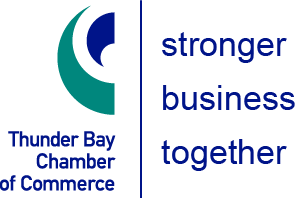The Canadian Chamber of Commerce (CCC) Annual Meeting was held in Ottawa over the weekend. A key focus of the conference was the debate of 60 resolutions on a broad range of issues. Approved policies become official Canadian Chamber positions and form the CCC’s advocacy activities with the Federal Government.
Thunder Bay Chamber delegates, Riley Burton, 2022 Chair of the Board, and Charla Robinson, President, were successful in garnering national support for three resolutions that support the growth of mining, forestry and aviation opportunities in Thunder Bay.
- Mining: The lack of adequate infrastructure is an obstacle to mining development. These large projects have the potential to significantly enrich our economy, but the costs to establish the needed road, energy, housing, and information infrastructure is frequently too much for private sector investment alone.
We are asking the government to establish enhanced funding partnerships and innovative funding models to assist and to work with public and private stakeholders to better coordinate and align infrastructure plans and spending. - Forestry: A coordinated campaign has been initiated by certain environmental groups in the U.S. to develop and implement state-level legislation that would discriminate against forest products exports from Canada.
We are asking the government to take action to: ensure that these legislative efforts are not enacted into law and that misinformation campaigns do not harm Canada’s position as a trusted supplier of forest products; to review Canadian government funding to groups that directly or indirectly support these efforts; and, to work with U.S. counterparts on eliminating import and export restrictions on trade in sustainable forest products between the two countries. Read more here. - Aviation: Aviation & aerospace are integrated industries rapidly recovering from negative pandemic impacts. Leveraging regional strengths would create new economic activity, diversify a region’s industrial base, & build high-quality employment in less developed centres. In addition, Canadian flight training schools are facing multiple challenges that, if addressed, would assist in tackling Canada’s pilot shortage.
We are asking the government to expand federal support for the development of aerospace clusters and aerospace-related training in underserved areas in Canada and to implement specific recommendations to address the pilot shortage. Read more here.















